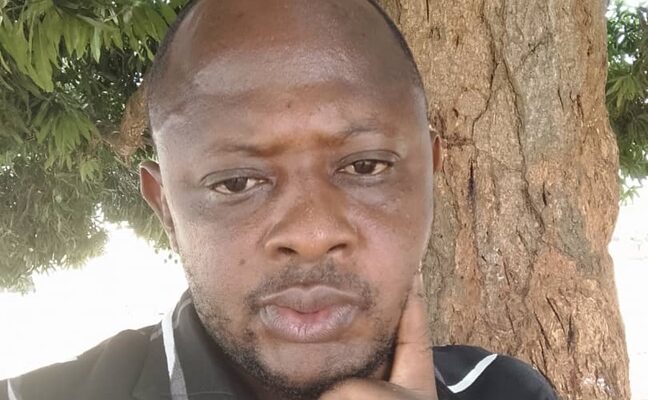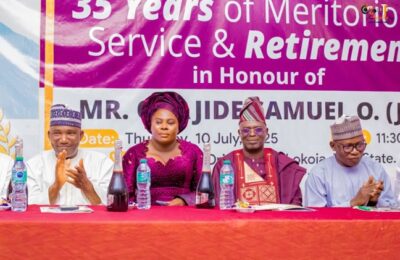Nigeria is a land of strange happenings. Here, those who suffer the most are often the ones clapping the loudest for those who make them suffer. Hunger grips the streets, yet the same hungry people are paid to sing praises for the very leaders who have kept them in chains. It is a country where the poor are hired to cry at funerals, while the rich, dressed in the most expensive mourning clothes, sip fine wine and discuss business.
Now, in yet another episode of this tragic comedy, a group of women have gathered at the National Assembly—not to demand justice, not to fight for their rights, but to beg a fellow woman, Senator Natasha Akpoti-Uduaghan, to apologize for speaking up. She had accused Senate President Godswill Akpabio of inappropriate conduct, and instead of allowing justice to take its course, paid voices have risen to defend power.
It is a familiar script. In Nigeria, those who steal billions are called “Your Excellency,” while those who steal bread are beaten on the streets and even sent to prison. A thief in a fine suit is called a businessman, but a hungry child who takes food from the market is called a criminal. The system is upside down. George Orwell once said, “All animals are equal, but some animals are more equal than others.” Nowhere is this truer than in Nigeria.
The real tragedy is that the poor, who should be the first to demand change, are the ones hired to fight against it. There is an Igala proverb that says, “If hunger enters the stomach, the hands will forget shame.” That is where Nigeria is today. Poverty should make people rise against injustice, but instead, it has become a leash around their necks. It drags them wherever the rich want them to go.
What happened at the National Assembly is not new. It is a well-rehearsed drama that plays out whenever the powerful are challenged. People are gathered, given small money or one cup of rice, and told what to say. The same government that cannot provide food, water, or electricity for its citizens will always find money to rent crowds when it is time to defend their interests. They cannot pay salaries on time, but they can organize protests overnight.
But at what cost? When people sell their voices, they sell their future. When a nation puts a price on its conscience, it mortgages its tomorrow. Every time people take money to defend the rich, they dig a deeper hole for themselves. The women kneeling at the National Assembly today may not see it, but their children will suffer for it tomorrow.

There is an old tale of a man who sold his shadow to a spirit in exchange for wealth. At first, he enjoyed the money, but soon, he realized he had lost something greater. Without his shadow, he was neither fully man nor fully ghost. He became a stranger to himself. Nigeria is on this same dangerous path. Each time we sell our voices for a plate of Amala or a few naira notes, we lose a part of our soul.
The Holy Bible says, “The rich rule over the poor, and the borrower is servant to the lender.” But does this mean the poor must always be slaves? Must they always dance to songs they did not compose? Must they always kneel before those who would never kneel before them?
The real tragedy of Nigeria is not just poverty. Poverty can be overcome. The real problem is that too many people believe that their suffering is normal or fate. They have been made to think that serving the rich is their destiny. But history tells us otherwise. From the French Revolution to the Civil Rights Movement, change has always come when the poor refused to remain silent. The hired tears must dry. The borrowed voices must be returned.
Frederick Douglass once said, “Power concedes nothing without a demand. It never did and it never will.” If Nigeria is to change, it will not be because the powerful suddenly became kind. It will be because the poor refused to kneel.
What shall it profit a nation if it gains all the world’s riches but loses its soul? The road before us is clear. We either continue as we are, selling our voices for a plate of Amala, or we rise, reclaim our dignity, and demand justice for all.
The women at the National Assembly may have been paid to kneel today, but when will they kneel for themselves? When will they march, not for a politician, but for their own future? When will Nigerians realize that no amount of money is worth their conscience?
Nigeria is at a crossroads. The hired tears of today must not become the legacy of tomorrow. The time has come to stop clapping for oppression, to stop lending our voices to the powerful, and to stop being pawns in a game we are never meant to win.
Let the poor rise. Let the rented voices speak their own truth. Let the conscience of this nation be bought no more. For a man who sells his voice today will wake up tomorrow to find he has no tongue.
– Inah Boniface Ocholi writes from Ayah, Igalamela/Odolu
08152094428





